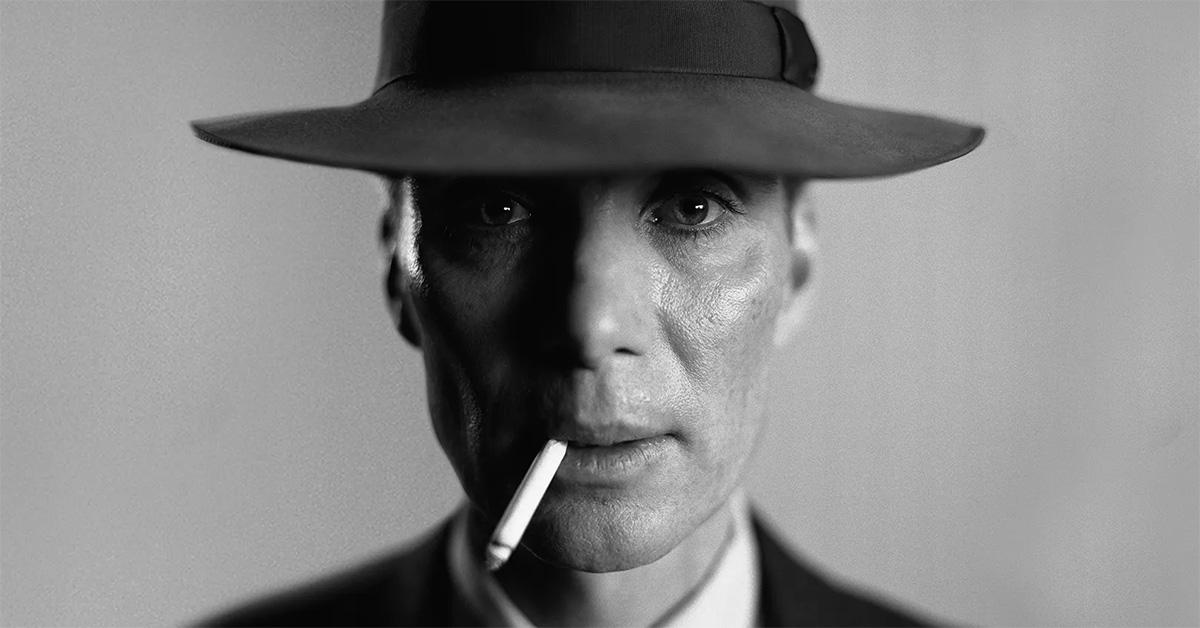Lewis Strauss and J. Robert Oppenheimer's Feud Is a Huge Part of 'Oppenheimer'
Published July 21 2023, 11:06 a.m. ET

Now that the cinematic event that is "Barbenheimer" is actually upon us, there's plenty to unpack from both movies. In the case of Oppenheimer, which is telling the true story of J. Robert Oppenheimer, the father of the atomic bomb, many want to better understand the feud between Senator Lewis Strauss and Oppenheimer as it's depicted in the film.
Although much of the film chronicles the invention of the atomic bomb, plenty of time in Oppenheimer is also reserved for the disagreements between Strauss and Oppenheimer, which ultimately led Strauss to go after Oppenheimer's reputation and his previous ties to communism. So, why did Strauss hate Oppenheimer? Here's what we know.
Why did Strauss hate Oppenheimer?
As Oppenheimer depicts, Strauss hated Oppenheimer for reasons that were both personal and political. Strauss was a staunch conservative whereas Oppenheimer was far more liberal and had been associated with the communist party in the past. Although the film doesn't dive into this as much, Strauss also resented Oppenheimer for distancing himself from the Jewish community in ways that Strauss hadn't done.

On top of those more general reasons, though, Oppenheimer suggests that Strauss hated Oppenheimer in large part because of testimony that Oppenheimer had given that challenged Strauss's position on exporting radioactive isotopes. Oppenheimer mocked Strauss's position, and in so doing revealed the difference between Oppenheimer's level of atomic expertise and Strauss's.
On top of all that, the movie also suggests that Strauss believed Oppenheimer had turned the scientific community against him. Strauss thought that Oppenheimer had said something to Albert Einstein when he and Oppenheimer first met. This seems to be more of an invention, and proves to ultimately be untrue within the context of the movie. Einstein and Oppenheimer were in fact not discussing Strauss at all.
Strauss went after Oppenheimer relentlessly.
As the movie depicts, Strauss exerted a great deal of effort to damage Oppenheimer's reputation and ensure that he wouldn't be an influential voice on issues of nuclear proliferation. Oppenheimer spent his time after the war advocating for open lines of communication between the U.S. and the Soviets. He suggested that researching a hydrogen bomb would only lead to further escalation of the nuclear arms race.
Through backchannels, Strauss worked to dredge up Oppenheimer's past as someone who was known to support communist adjacent causes and communicate with known communists. Ultimately, Strauss tarnished Oppenheimer's reputation to the extent that he could no longer receive his high-level security clearance.
As Oppenheimer shows, though, Strauss lost the trust of the scientific community in large part because of his relentless attacks on Oppenheimer, which felt vindictive and personal.
Although it doesn't become clear until near the end of the movie, Strauss functions as the movie's antagonist, and the character who does the most damage to Oppenheimer. Of course, the movie is really about the struggle within Oppenheimer as he unleashes a power mankind has never known before. Oppenheimer has to deal with the ramifications of the horror that he has unleashed on the world.